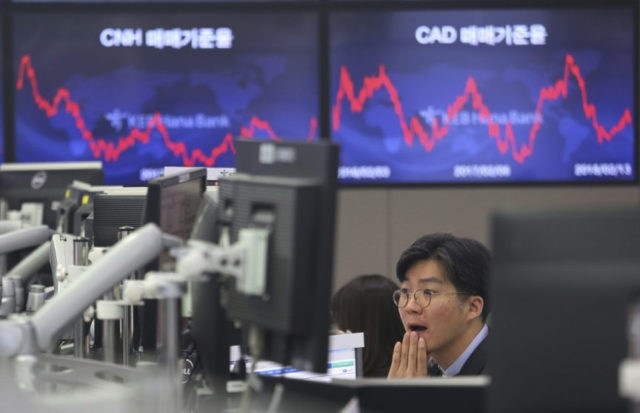Outgoing People’s Bank of China governor Zhou Xiaochuan held a press briefing on Thursday in which he dropped a few hints about the launch of China’s new digital currency, known as “DCEP” for Digital Currency Electronic Payment.
The great lingering question about DCEP is whether it will be a full-blown cryptocurrency intended to compete with Bitcoin, or a less ambitious financial instrument meant to streamline electronic payments.
BitsOnline quotes reports from the news conference and subsequent analysis that Zhou did not say much beyond confirming that the long-rumored Chinese digital currency project is real, and revealing its rather clunky name. The strongest evidence that DCEP could be a cryptocurrency is that the People’s Bank of China has been researching blockchain technology since 2014, and by its own account began testing a Bitcoin-style platform in 2015.
“Zhou didn’t indicate any change of direction for China’s policy on other digital assets, including cryptocurrencies and ICOs. He did say supervision of the industry was ‘dynamic’ with no certain regulatory policy, but also mentioned the oft-repeated central bank concerns about stability, consumer protection and investor risk from excessive speculation,” BitsOnline reports.
The most compelling argument against Chinese plans to launch a cryptocurrency is that Bitcoin miners and other crypto enthusiasts love the fact that no central bank or national government controls the value of their virtual coins. That is essentially the first line in the Bitcoin mission statement. It would not truly be “crypto” currency if its value could be manipulated by regulatory fiat.
China’s central bankers have reason to modernize their currency exchanges and make electronic funds transfers easier, but no particular reason to think a cryptocurrency managed by an infamously authoritarian government with a command economy would woo international customers away from existing options.
There is no clear reason to think Chinese customers are hungry for a homegrown virtual coin minted by the Politburo in Beijing. Despite an outright ban on the thriving cryptocurrency industry in China at the end of 2017, followed by a crackdown on outlawed trading in 2018, blockchain exchanges like Bitcoin and Ethereum are still going strong in China. In fact, Ethereum might be set to grow several times as fast as Bitcoin in 2018, partly due to its popularity as a funding instrument for tech startups.
The tyrants of Beijing can purge individual letters of the alphabet from search engines, but they cannot seem to shut down the billion-dollar-a-day crypto markets. Their normally heavy hand might be held back in this case by nagging fears that cryptocurrency traders will simply migrate to Hong Kong or Singapore en masse if the ban is enforced too strictly; conversely, Chinese traders are wary of provoking their government into doing something rash. The last crackdown pushed many exchanges out of mainland China, leaving regulators with even less control over them.
The Chinese government has spoken of tuning its fabled “Great Firewall” to cut off cryptocurrency trading, but some analysts think blockchain tech is evolving too rapidly for even China’s formidable censorship system to control it. This week a new initiative was launched to choke out cryptocurrency markets by making it more difficult for Chinese customers to communicate with offshore operations. The plan was intimidating enough to knock about 12 percent off the value of Bitcoin.
Zhou declared on Friday that the Chinese central bank is worried about the potentially destabilizing influence of cryptocurrency and therefore refuses to “recognize Bitcoin and other digital currencies as a tool like paper money, coins, and credit cards for retail payments.” That’s a strong clue as to the role DCEP currency could fill as a streamlined electronic payment system acceptable to the central bank. Whatever DCEP turns out to be, it will apparently go live sometime in 2019.

COMMENTS
Please let us know if you're having issues with commenting.